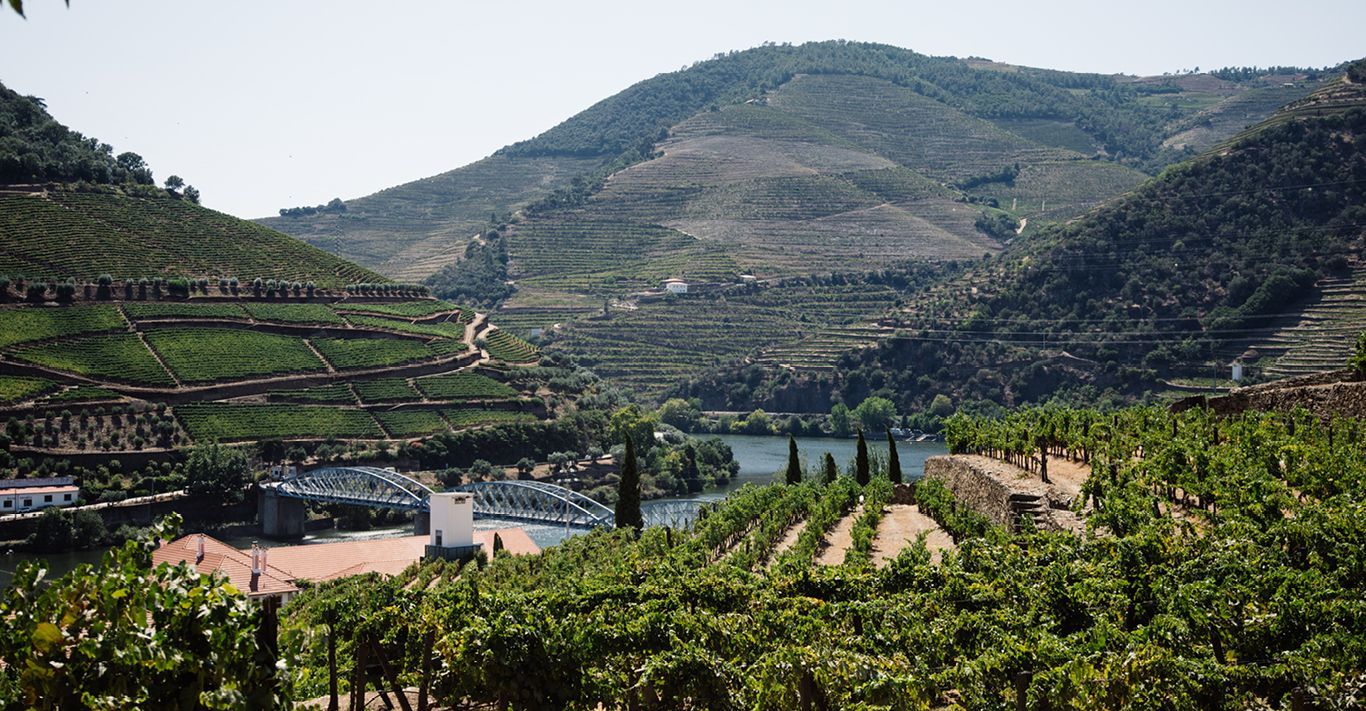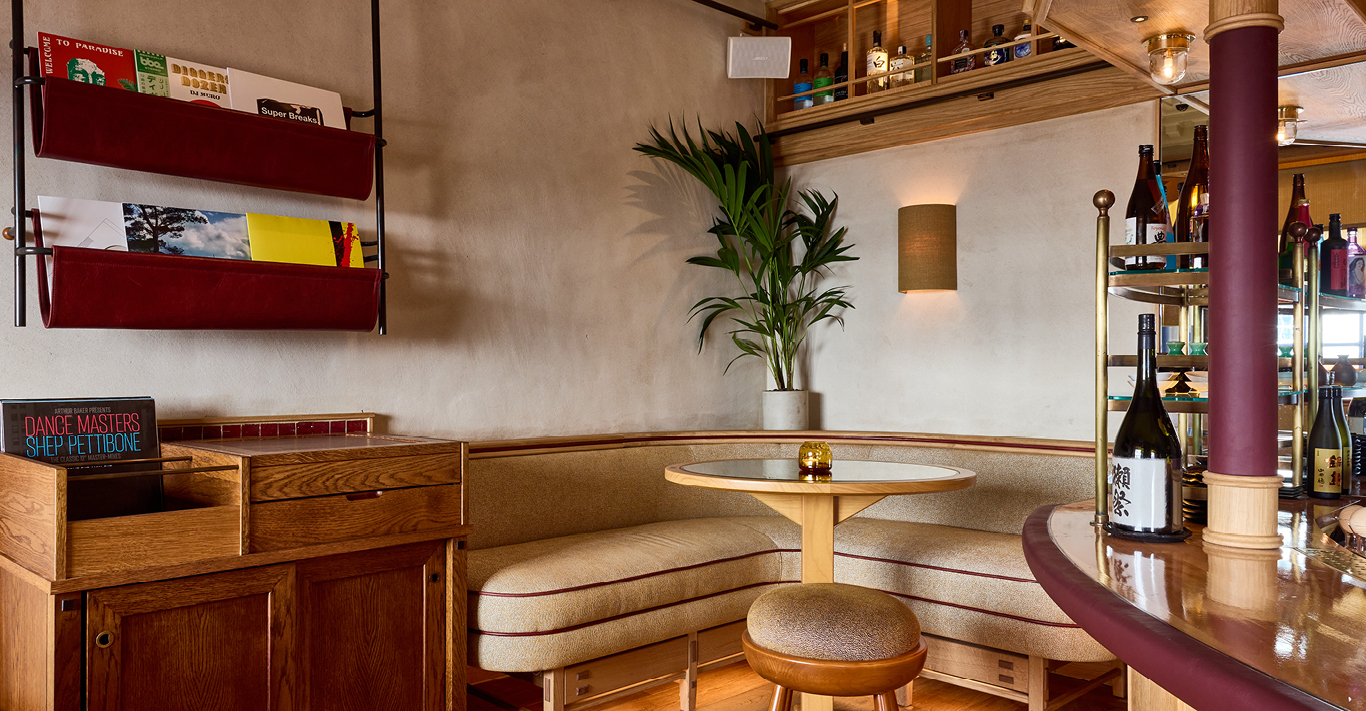WORDS
Chris Madigan
Symington Family Estates is called that for a reason. It’s a genuine family business. How do the generational dynamics work?
I work with my sister and brother. And there are 11 of us working across the group, plus three retired but still salaried. I’m not sure there’s a wine family anywhere on the planet with 14 members on the books. The thing is, we’ve all grown up in this valley. The wine, the harvest and the cycle of the year is such a part of our lifestyle that it’s inevitable people feel an emotional attachment to it. So, transition is an interesting one. We have a very strict family rule, which is you must retire at 65, which creates space for the younger generation to come in.
Do you have emeritus directors looming over your generation like Sir Alex Ferguson in the stands at Manchester United?
When that rule was put in place by my grandfather’s generation, none of them were expecting to live much beyond 70. These days, fingers crossed, people can live well beyond 80 with good health. My dad, Paul, retired a few years ago and it wasn’t the easiest thing for him because he had to let go of the steering wheel when arguably he was at the height of his powers. It’s not like he has disappeared; he still sits on various boards. But he told me that, when his own father retired in the early 1990s, he gave him a lot of space and he was thankful for that. Plus, we have quite a tight family and we know it’s in nobody’s interest to rock the boat. We have shared values and a commitment to keeping this thing going. None of us really feel like we own it; we feel like caretakers. Other wine families have much more difficulty on succession, because there’s one patriarch in his 80s who can’t let it go.
You grew up in Portugal around the family business. Did you work in it from the start?
No, I grew up in Porto but had a lot of my education in the UK – boarding schools, university. Like a lot of our family, my first job was completely outside of wine, as a business consultant at Ernst & Young. Then I left that corporate job to start a business called Escape The City, an online platform built around a community that helps people make non-linear career changes – jobs in startups, entrepreneurial work, jobs in far-flung locations and social impact work. I did that for 10 years in London and then came back six years ago with my family to work with my old man before he retired.
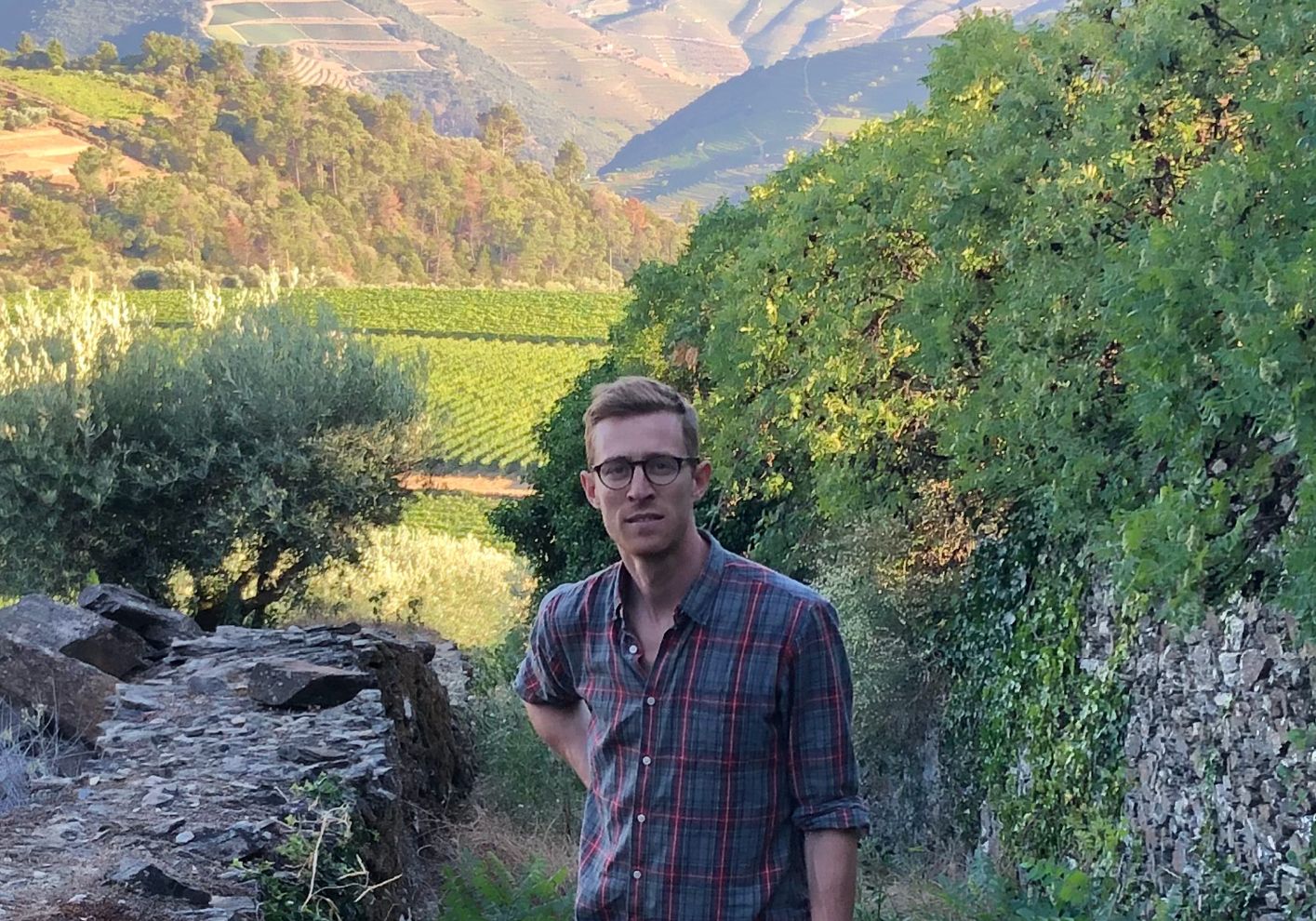
Was it a shock to the system?
Returning from working with dynamic, sexy startups with ping-pong in the office and all the clichés, I was expecting to step back in time. But the thing that struck me when I had my preliminary meetings with people was that every generation had essentially reinvented the business. I realised they were motivated by change as much as me. The first thing I worked on was a sustainability plan looking ahead five, 10, 20 years. Escape The City had been one of the UK’s founding B Corporations. I got the B Corp representative for Portugal to come in, to be provocative, and I was surprised that family members who I’d thought were very traditional really got behind it.
You achieved B Corp status as early as 2015. What have you done since then on sustainability matters?
Our next step was to implement progressive policies in, essentially, four categories: viticulture and biodiversity; energy and water; buildings, packaging and waste; and the team and local community. We called it Mission 2025 and we have 16 people throughout the business working in those four categories. Climate action is massive for us because it’s an existential threat – both to our business and to the Douro Valley. If the region could no longer produce wine and port, you’d be looking at forced migration on a massive scale. We have 600 people working for us to care about. As market leaders in port, we can influence other players in the wine business as well. But to throw our weight around, we’ve had to sign up to third-party frameworks, with independent audits and public reporting. A lot of wine companies view sustainability agendas as a storytelling or comms opportunity. For us, it’s about transformation, risk management and future-proofing.
As much as you might do the right things for the Douro’s climate and social sustainability, it may not be up to you in the end whether the region can still grow the grapes you need…
It can be tough to hit the targets when we don’t have direct control over 94 per cent of our emissions – they’re in our supply chain. That’s why an organisation such as the IWCA (International Wineries for Climate Action) is so important. We are about 50 wineries from 10 countries, so it’s a louder voice to put pressure on our suppliers, transport chains and so on. We have a three-part approach – mitigate our own impact, use our voice to influence others, and the third is to adapt.
Does that mean you’re experimenting with different grape varietals?
Since as far back as 2014, Symington Family Estates has grown more than 50 varietals in different parts of the valley. There are a few of the famous French varietals, but mostly they are ancestral indigenous varietals that fell out of fashion because they produced lower yields than the current big five. After nearly 10 years, we have studied under different conditions of temperature, rainfall cycle, diseases etc. And we know their quality, not just their resilience. There’s no point planting something that can survive ridiculous temperatures if it tastes like crap in the glass. We’ve identified six or seven that are hardy but also bloody good.
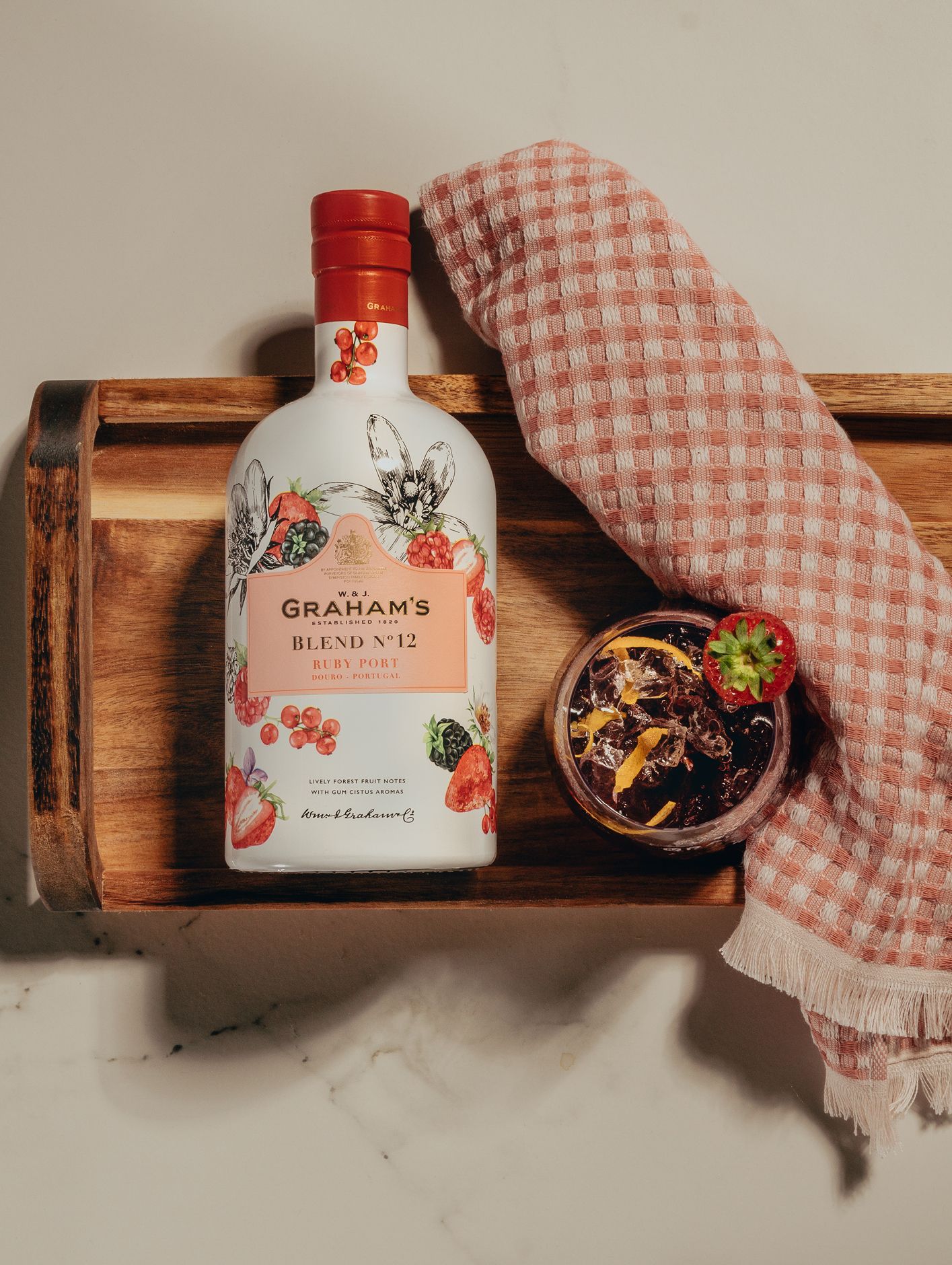
Until we’re drinking port made from those different grapes, are there any other changes to the actual liquid you produce?
There is a very traditional side to port (it’s served at Buckingham Palace state dinners, for example) but it’s also very democratic – we sell a bottle of Cockburn’s Special Reserve every 11 seconds from October to Christmas. So we’re evolving in two directions. First, a bit like whisky has done, we’re making our classic products look like they belong in the 21st century. People don’t pass a decanter at a dinner party any more, so our 10-year-old Graham’s in a clear bottle allows the colour of the wine to shine. It has been very successful. In parallel, we have also been creating innovative new ports that are made for mixing. So with Graham’s we’ve launched the Blend Series. Blend No 5 is a white port; Blend No 12 a ruby.
But beyond the cool packaging, are these actually different styles of port?
Yes, they’ve been specifically blended for mixing. White ports, generally, are never specifically blended from one or two grape varieties. The farmer just throws in whatever white grapes they’re growing. For Blend No 5, we have worked with farmers who’ve been supplying Graham’s for a long time to select two grape varieties – moscatel galego and malvasia fina, which provide tropical, aromatic notes. And they’re grown at higher altitudes, which gives you more acidity and precision in your white grapes. It’s also cold fermented, which is a more expensive and laborious process than normal port fermentation. The ruby Blend No 12 is an interesting one. It’s made predominantly from touriga nacional, widely considered the Douro’s best grape variety, from the highest-grade lots. This is a port that would have vintage port potential. It’s picked at midnight and, again, cold fermented. And instead of ageing, it never touches oak – it’s bottled after six months straight out of stainless steel. We really challenged our technical team in the tasting room to step out of their comfort zones and blend wines that would work in cocktails and with tonic. These guys are wine people. They’re not used to the mixology scene. But bartenders love using port because it offers them the sweetness but also tannins and aromatic variety – plus different colours!
Are there any other areas where the company is moving out of its comfort zone?
We used to be a port company that did very little hospitality beyond hosting professionals. Today, we have three pillars to our business: port, unfortified wine [including the highly regarded Chryseia by Prats & Symington] and drinks tourism. Currently we run three visitor centres and three restaurants in the Douro Valley and in Porto. We’ve launched our Matriarca wine club and we’re currently working on a really exciting project, which is a clubhouse for wine lovers in downtown Porto, due to open in spring 2025. And we aim to open our first hotel, in the Douro, a few years later. When you ask about family business succession, I’d say we’re about five years into a 10-year cycle of transformation, which will change how we operate as a business in so many ways.
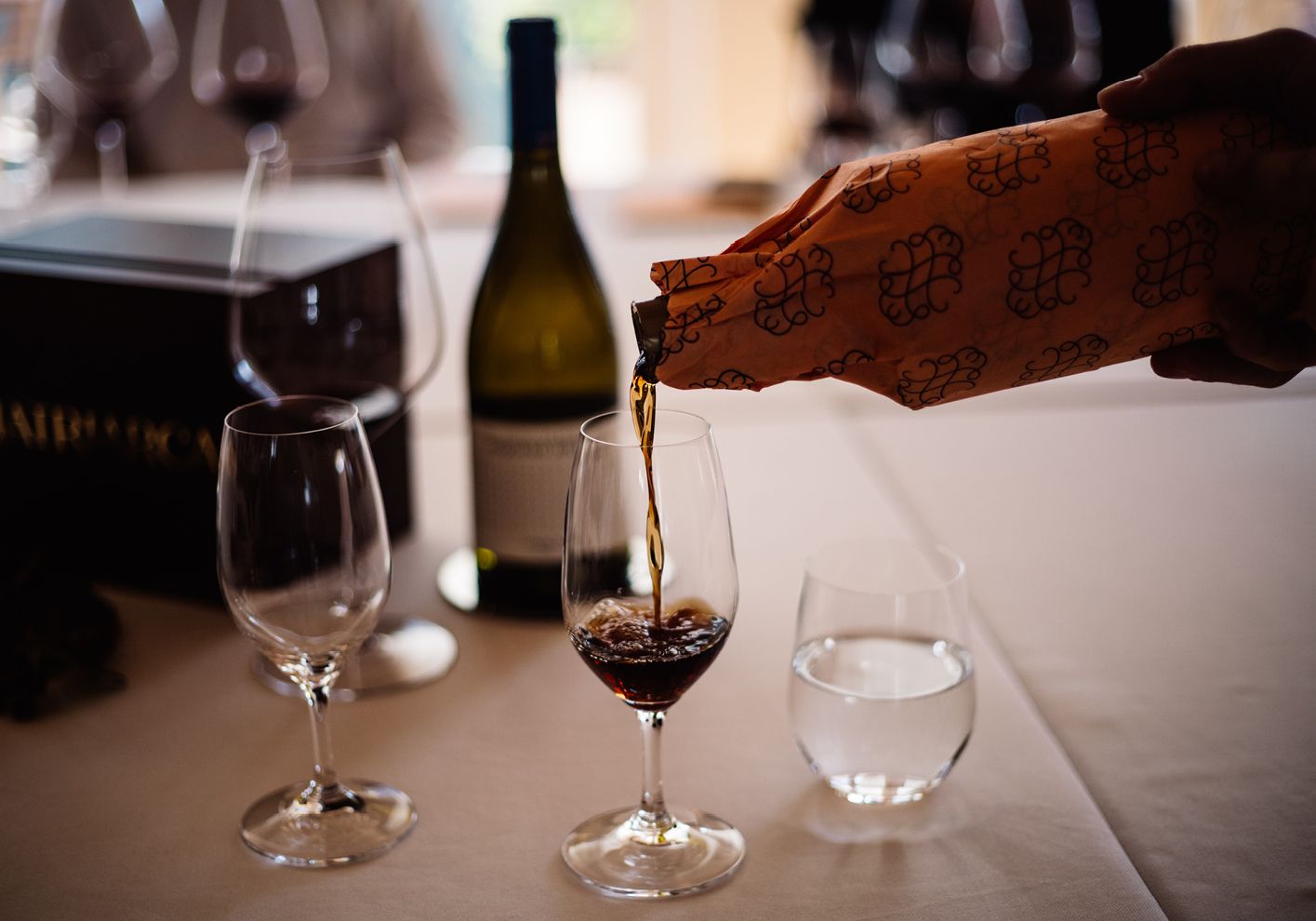
What is the Matriarca club?
It’s a new community that we have launched for Portuguese wine and port enthusiasts in the UK and Portugal – with only 100 memberships currently available in each country (although we will expand). An annual subscription [£750] provides a special selection of 12 bottles a year, as well as access to a private wine list and invitations to exclusive events and tastings in the UK and Portugal. The focus is on quality of experience. We’ve already had members in Portugal visit wineries that are not usually open to the public. Over time we will expand this community and will continue to offer them rare wines and ports that aren’t easily accessible – or accessible at all – elsewhere, as well as continuing to provide a super-engaging calendar of events, some on-site at Symington cellars and estates, and some at partner restaurants and other venues.
With all this generational progress, is there a change that you’ve wanted to make but haven’t yet?
Well, I have two daughters and it’s glaringly obvious that, at the most senior level in our company, we are significantly underrepresented by women. We currently have three female Symingtons across the whole company and they are the first in its near century-and-a-half history. Over the next decade, it’s the firm intention of my cousins and I to redress that balance.
Is there anything that won’t change?
One is that we will never compromise on quality. The other is respect for the Douro and its people. We buy grapes today from farmers whose grandfathers sold grapes to my grandfather. So, you won’t find any members of my family acting with airs and graces. We’re embedded in the socioeconomics and the community of the region.


